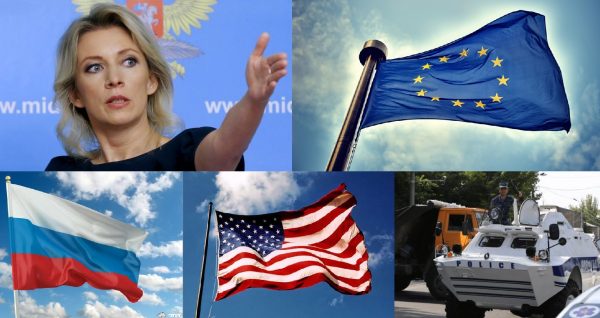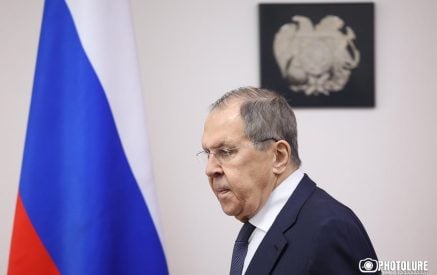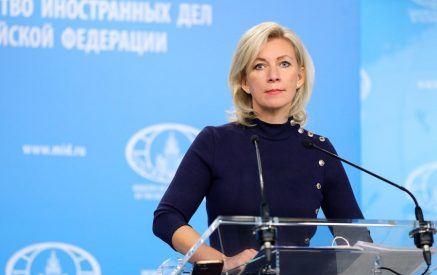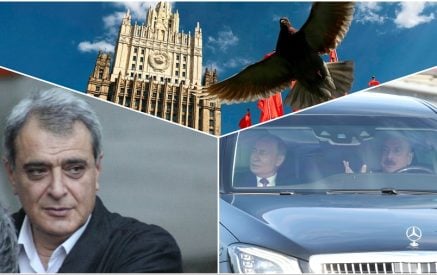Against the backdrop of takeover of the patrol-guard service regiment by the “Sasna Tsrer” group in Armenia, the subsequent mass police violence against the Armenian civil society and the resulting increasingly large-scale protests, it is worth addressing the response of three influential foreign political forces in Armenia, that of the European Union, The United States and the Russian Federation.
Positions
The US State Department Spokesperson Mark Toner made the following statement during the press briefing in Washington on July 19, “We obviously condemn strongly the use of violence to effect political change in Armenia or anywhere”. He also encouraged the Armenian authorities to handle the situation with appropriate restraint. Besides, he also extended condolences to the police officer who lost his life.
A few hours later, the US ambassador in Armenia almost completely repeated Toner’s words, but with the following addition, “Now is the time for all Armenians to respect the rule of law, so this situation can be brought to a peaceful end, which I believe is what all Armenians want”. Ambassador Mills also informed that there had been no direct contact between the RA Government and the US since the crisis began.
Read also
The EU Delegation in Armenia also condemned the use of force, expressed condolences to the family of colonel Arthur Vanoyan, wished a full recovery to all the persons injured in connection with the situation at the Erebuni police base, and expressed concern about reports on excessive use of force and mass arrests by the police. The EU Delegation also urged the demonstrators to “refrain from violence in the exercise of their civil rights” and condemned the alleged wrongdoing of the police, including mistreatment, denial of access to lawyers and medical care for the detained people.
In contrast to the statements by the US and the EU, the statement issued by the Russian Federation is much more biased. The US and EU official representatives did condemn bilateral violence and urged the sides to act in accordance with the law. However, the Russian Foreign Ministry representative Maria Zakharova made a clearly biased statement on behalf of her country on July 21. In particular, she strongly condemned the police base takeover by calling it a “criminal act”, and supported the actions taken by the government. Zakharova also added that the Russian Federation is hopeful that the RA authorities will be able to “unblock the situation as soon as possible, release the hostages, carry out a full investigation of the incident and punish the responsible persons”.
Of course, it would be naïve to hope that the Russian Federation, which has had unprecedented “achievements” in human rights violations, would condemn violence directed at hundreds of people in Armenia who were detained without justification and with numerous violations of law, subjected to physical violence and humiliation, people who were not really related to the organization of the incident.
But the Russian government went even further and started to use the internal dangerous situation in Armenia in order to start a “verbal fight” with the European Union.
On July 22, the Russian Foreign Ministry issued a statement according to which they consider that curiously enough, the EU statement “did not include a direct and clear criticism of the criminal armed attack on the police base, murder of a policeman and hostage-taking. However, the aforementioned statement of the EU Delegation in Armenia does clearly contain all those points.
Russia’s Problem
Hence, either the Russian Foreign Ministry does not have personnel who would properly translate the statement of the EU Delegation in Armenia from Armenian/English into Russian without distortions of meaning, or they have simply turned to manipulations to meet their own interests.
At the end, the Russian Foreign Ministry statement mentions that “it is difficult to get rid of the sensation that the EU delegates in Armenia are obviously encouraging these forces who want to shake up the domestic situation of the country”.
In fact, sensations should never serve as bases for expressing an official diplomatic position, and mentioning them as a justification for the position of the Russian Federation related to such an unprecedented and dangerous situation in Armenia can be considered as lacking seriousness, to say the least.
Moreover, it is worth noting that once again Russia is trying to see the “trace of the West” in a completely internal political process. This can be related to the circumstance that the wave of protest has risen because of the perspective of ceding lands to Azerbaijan under Russian pressure. And regardless of the outcome, these protests will be used as a back-pressure.
Anna Pambukhchyan
“Union of Informed Citizens”























































